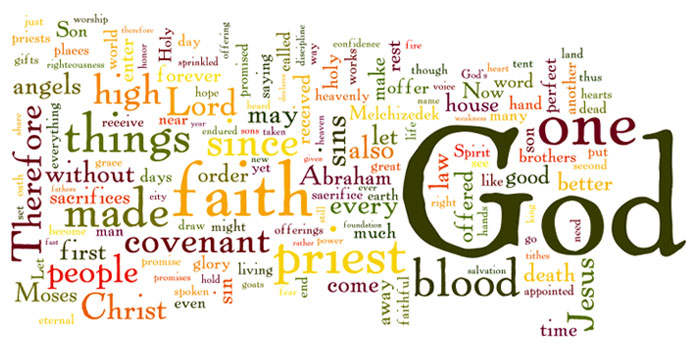Through him then let us continually offer up a sacrifice of praise to God, that is, the fruit of lips that acknowledge his name. (Hebrews 13:15)
One of the main themes of the book of Hebrews has been that Jesus ended the sacrificial system by fulfilling the law and offering himself as a perfect sacrifice. It might come as something of a shock then to read that we are to “offer up a sacrifice”.
The Old Covenant sacrificial system existed to direct the people’s worship of God. We continue to worship God under the New Covenant, therefore it seems fitting that in explaining the end of the old system of worship, the author should also explain how to properly direct worship under the New Covenant.
As Christians, we should direct our worship to God the Father, through Jesus. Jesus is the only mediator between us and God (1 Timothy 2:5), he is the “once for all” blood sacrifice of the New Covenant, we must therefore worship in him. Under the Old Covenant, worship happened in the tabernacle or temple. But now, Jesus is our tabernacle. By his indwelling Spirit, our bodies have become the new temple. With Jesus as our High Priest, our geographic location is no longer a determining factor in worship.
. . . the hour is coming when neither on this mountain nor in Jerusalem will you worship the Father. . .
But the hour is coming, and is now here, when the true worshipers will worship the Father in spirit and truth, for the Father is seeking such people to worship him. (John 4:21-23)
Notice also the nature of the sacrifices of our worship. There are two mentioned in this passage.
First, sacrifices of praise. This is essentially prayer. It is the fruit of our lips as we acknowledge God, give thanks, and honor him. Too often we read praise and replace it in our minds with singing. We can certainly praise God in song, but we can, and should, praise him in all our prayers (singing being a form of prayer).
It is striking the parallel between this verse and Romans 1:21. Here Paul is describing the ungodly and unrighteous men against whom God directs his wrath.
For although they knew God, they did not honor him as God or give thanks to him, but they became futile in their thinking, and their foolish hearts were darkened. (Romans 1:21)
Notice that the fruit of their lips is not to acknowledge God or give thanks to him. This is how we worship. The ungodly and unrighteous do not take part.
Secondly, our worship consists of doing good and being generous.
Do not neglect to do good and to share what you have, for such sacrifices are pleasing to God. (Hebrews 13:16)
In other words, our worship, under the New Covenant, is not limited in place or time, but happens in the stream of every day life. The building we often call “the church” isn’t the temple. We don’t have to go to this building to offer sacrifices. And we are to offer our new covenant sacrifices “continually”, which means it’s going to take more than just an hour and half on Sunday morning.
We make offering to God through Jesus as we do good, show generosity, and praise God with our lips continually. If you’re good works, generosity, and praise only happen at events that take place in a “church” building, you are not worshiping properly.
This doesn’t mean that we are to worship in isolation however. A “Me and Jesus” or “I go to church outdoors” attitude won’t do either. As we noted previously, this is best done in community as the church.
* This concludes our Hebrews read along. To see all posts in the series, click here.

Leave a Reply